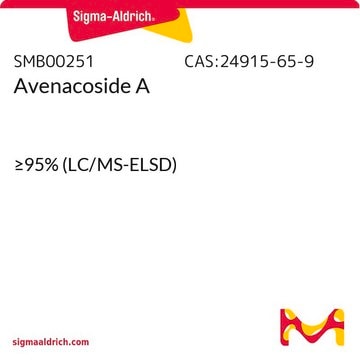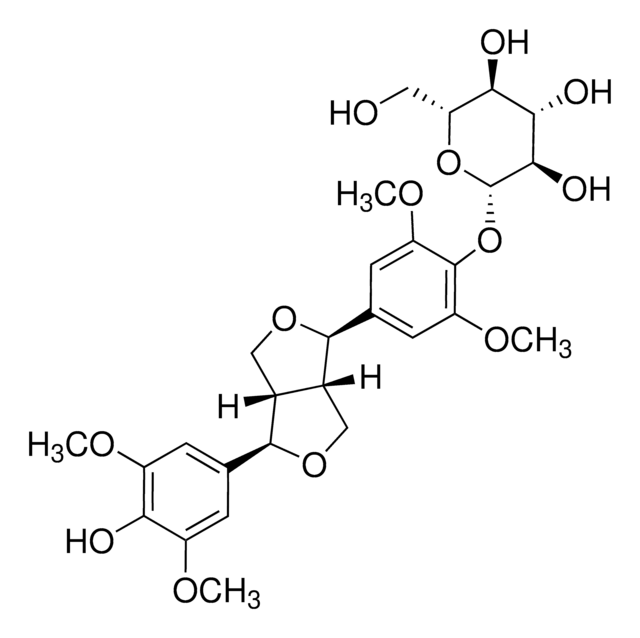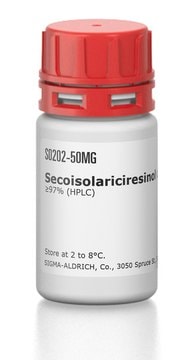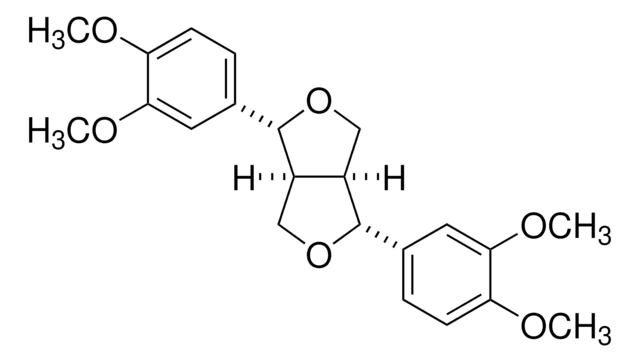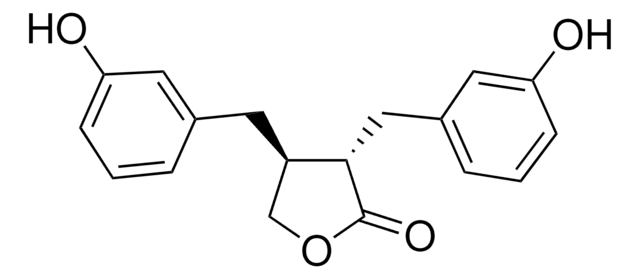06892
(+)-Lariciresinol
≥95.0% (HPLC)
Synonym(s):
(2S,3R,4R)-Tetrahydro-2-(4-hydroxy-3-methoxyphenyl)-4-[(4-hydroxy-3-methoxyphenyl)methyl]-3-furanmethanol, 4-[(2S,3R,4R)-4-[(4-Hydroxy-3-methoxyphenyl)methyl]-3-(hydroxymethyl)oxolan-2-yl]-2-methoxyphenol, NSC 329247
About This Item
Recommended Products
Quality Level
Assay
≥95.0% (HPLC)
form
powder
application(s)
metabolomics
vitamins, nutraceuticals, and natural products
SMILES string
COc1cc(C[C@H]2CO[C@@H]([C@H]2CO)c3ccc(O)c(OC)c3)ccc1O
InChI
1S/C20H24O6/c1-24-18-8-12(3-5-16(18)22)7-14-11-26-20(15(14)10-21)13-4-6-17(23)19(9-13)25-2/h3-6,8-9,14-15,20-23H,7,10-11H2,1-2H3/t14-,15-,20+/m0/s1
InChI key
MHXCIKYXNYCMHY-AUSJPIAWSA-N
General description
Application
- in the purification, identification, and analysis of lignan phytoestrogens and lignan glycosides
- for the determination of the enantiomeric composition of lariciresinol from the pinoresinol to lariciresinol reduction reaction using high-performance liquid chromatography (HPLC)
- forqualitative and quantitative analysis of lignans in seven types of triticalegrain using ultra-performance liquid chromatography (UPLC)
Biochem/physiol Actions
Packaging
Signal Word
Warning
Hazard Statements
Precautionary Statements
Hazard Classifications
Aquatic Acute 1
Storage Class Code
11 - Combustible Solids
WGK
WGK 3
Flash Point(F)
Not applicable
Flash Point(C)
Not applicable
Certificates of Analysis (COA)
Search for Certificates of Analysis (COA) by entering the products Lot/Batch Number. Lot and Batch Numbers can be found on a product’s label following the words ‘Lot’ or ‘Batch’.
Already Own This Product?
Find documentation for the products that you have recently purchased in the Document Library.
Customers Also Viewed
Our team of scientists has experience in all areas of research including Life Science, Material Science, Chemical Synthesis, Chromatography, Analytical and many others.
Contact Technical Service




